- Home
- F. Paul Wilson
The Tomb Page 13
The Tomb Read online
Page 13
“You’ll be back?” The answer was very important to him at the moment. He didn’t know why. He hardly knew her.
“Yes, if I can be.” Her eyes were troubled. For an instant he thought he detected a hint of fear in them. “I hope so. I really do.”
She kissed him again, then was out the door and on her way down the stairs.
Jack closed the door, locked it, and leaned against it. If he weren’t so exhausted from lack of sleep and from the strenuous demands Kolabati had made upon him tonight, he would have tried to make some sense out of the evening’s events.
He headed for bed. This time to sleep.
But chase it as he might, sleep eluded him. The memory of the odor, Kolabati’s bizarre behavior … he couldn’t explain them. But it wasn’t what had happened tonight that bothered him so much as the gnawing uneasy feeling that something awful had almost happened.
8
Kusum started out of his sleep, instantly alert. A sound had awakened him. His Gita slipped off his lap and onto the floor as he sprang to his feet and stepped to the cabin door.
It was most likely the Mother and the young one returning, but it wouldn’t hurt to be sure. One never knew what kind of scum might be lurking about the docks. He didn’t care who came aboard in his absence—it would have to be a fairly determined thief or vandal because Kusum always kept the gangway raised. A silent beeper was needed to bring it down. But an industrious low-caste type who climbed one of the ropes and sneaked aboard would find little of value in the superstructure. And should he venture below decks to the cargo hold … one less untouchable prowling the streets.
But when Kusum was aboard—and he expected to be spending more time here than he wished now that Kolabati was in town—he liked to be careful. He didn’t want any unpleasant surprises.
Kolabati’s arrival had been a surprise. He had thought her safely away in Washington. She had already caused him an enormous amount of trouble this week and would undoubtedly cause him more. She knew him too well. He would have to avoid her whenever possible. And she must never learn of this ship or its cargo.
He heard the sound again and saw two dark forms of unmistakable configuration lope along the deck. They should have been burdened with their prey, but they were not. Alarmed, Kusum ran down to the deck. He checked to make sure he was wearing the necklace, then stood in a corner and watched the rakoshi as they passed.
The youngling came first, prodded along by the Mother behind it. Both appeared agitated. If only they could talk! He had been able to teach the younglings a few words, but that was mere mimicry, not speech. He had never felt so much the need to communicate with the rakoshi as he did tonight. Yet he knew that was impossible. They were not stupid; they could learn simple tasks and follow simple commands—had he not been training them to act as crew for the ship?—but their minds did not operate on a level that permitted intelligent communication.
What had happened tonight? The Mother had never failed him before. When she caught the Scent, she invariably brought back the targeted victim. Yet tonight she had failed.
Could there have been a mistake? Perhaps the chocolates hadn’t arrived. But how then had the Mother caught the Scent? No one but Kusum controlled the source of the Scent.
None of this made sense.
He padded down the steps that led belowdecks. The two rakoshi were waiting there, the Mother subdued by the knowledge that she had failed, the youngling restless, pacing about. Kusum slipped past them. The Mother raised her head, dimly aware of his presence, but the youngling only hissed and continued its pacing, oblivious to him.
Kusum spun the wheel on the hatch and pulled it open. The youngling tried to retreat. It didn’t like being on the iron ship and rebelled at returning to the hold. Kusum watched patiently. They all did this after their first run through the city. They wanted to be out in the air, away from the iron hold that weakened them, out among the crowds where they could pick and choose among the fattened human cattle.
The Mother would have none of it. She gave the youngling a brutal shove that sent it stumbling into the arms of its siblings waiting inside. Then she followed.
Kusum slammed the hatch closed, secured it, then pounded his fist against its damp surface. Would he never be done with this? He had thought he would be closer to fulfilling the vow tonight. Something had gone wrong. It worried him almost as much as it angered him. Had a new variable been added, or were the rakoshi to blame?
Why was there no victim?
One thing was certain, however: There would have to be punishment. That was the way it always had been. That was the way it would be tonight.
9
Oh, Kusum! What have you done?
Kolabati’s insides writhed in terror as she sat huddled in the rear of the cab. The ride was mercifully brief—directly across Central Park to a stately building of white stone on Fifth Avenue.
The night doorman didn’t know Kolabati so he stopped her. He was old, his face a mass of wrinkles. Kolabati detested old people. She found the thought of growing old disgusting. The doorman questioned her until she showed him her key and her Maryland driver’s license, confirming her last name to be the same as Kusum’s. She hurried through the marble lobby, past the modern low-backed couch and chairs and the uninspired abstract paintings on the walls, to the elevator. It stood open, waiting. She pressed 9, the top floor, and stood impatiently until the door closed and the car started up.
Kolabati slumped against the rear wall and closed her eyes.
That odor! She’d thought her heart would stop when she recognized it tonight. She thought she’d left it behind forever in India.
A rakosh!
One had been outside Jack’s apartment less than an hour ago. Her mind balked at the thought, yet there was no doubt. As sure as the night was dark, as sure as the number of her years—a rakosh! The knowledge nauseated her, made her weak inside and out. And the most terrifying part of it all: The only man who could be responsible—the only man in the world—was her brother.
But why Jack’s apartment?
And how? By the Black Goddess, how?
The elevator glided to a smooth halt, the doors slid open, and Kolabati headed directly for the door numbered 9B. She hesitated before inserting the key. This was not going to be easy. She loved Kusum but he intimidated her. Not physically—for he would never raise his hand against her—but morally. It hadn’t always been so, but lately his righteousness had become impenetrable.
But not this time, she told herself. This time he’s wrong.
She turned the key and stepped inside.
The apartment lay dark and silent around her. She flipped the light switch, revealing a huge, low-ceilinged living room decorated by a hired professional. She’d guessed that on first sight. She could find no trace of Kusum in the decor. He hadn’t bothered to personalize it, which meant he didn’t intend to stay here very long.
“Kusum?”
She went down the two steps to the wool-carpeted living room and crossed to the closed door that led to her brother’s bedroom. It was dark and empty within.
She went back to the living room and called, louder now. “Kusum!”
No answer.
He had to be here! She had to find him! She was the only one who could stop him!
She walked past the door that led to the bedroom he had supplied for her and went to the picture window overlooking Central Park. The great body of the park was dark, cut at irregular intervals by lighted roads, luminescent serpents winding their way from Fifth Avenue to Central Park West.
Where are you, my brother, and what are you doing? What awfulness have you brought back to life?
10
The two propane torches on either side of him were lit and roaring blue flame toward the high ceiling of the hold. Kusum made a final adjustment on the air draw to each one—he wanted to keep them noisy but didn’t want them to blow themselves out. When he was satisfied with the flames, he unclasped his necklace and laid
it on the propane tank at the rear of the square platform. He’d changed from his everyday clothes into his blood red ceremonial dhoti, arranging the one-piece sarong-like garment in the traditional Mahratta style with the left end hooked beneath his leg and the bulk gathered at his right hip, leaving his legs bare. He picked up his coiled bullwhip, then stabbed the Down button with his middle finger.
The lift—an open elevator platform floored with wooden planks—lurched, then started a slow descent along the aft corner of the starboard wall of the main hold into the dark below. Not completely dark, for he kept the emergency lights on at all times, but these were so scattered and of such low wattage that the illumination they provided was nominal at best.
When the lift reached the halfway point, he heard a shuffling sound from below as rakoshi moved from directly beneath him, wary of the descending platform and the fire it carried. As he neared the floor of the hold and the light from the torches spread among its occupants, tiny spots of brightness began to pick up and return the glare—a few at first, then more and more until more than a hundred yellow eyes gleamed from the darkness.
A murmur rose among the rakoshi to become a whispery chant, low, throaty, guttural.
“Kaka-jiiiiii! Kaka-jiiiiii!”
Kusum loosed the coils of his whip and cracked it. The sound echoed like a gunshot through the hold. The chant cut off. They now knew he was angry; they would remain silent. As the platform and its roaring flames drew nearer the floor, they backed farther away. In all of heaven and earth, fire was all they feared—fire and their Kaka-ji.
He stopped the lift three or four feet above the floor, giving himself a raised platform from which to address the rakoshi assembled in a rough semicircle just beyond the reach of the torchlight. They were barely visible except for an occasional highlight off a smooth scalp or a hulking shoulder. And the eyes. All the eyes were focused on Kusum.
He began to speak to them in the Bengali dialect, knowing they could understand little of what he was saying, but confident they would eventually get his meaning. Although he was not angry with them, he filled his voice with rage, for that was an integral part of what was to follow. He did not understand what had gone wrong tonight, and knew from the confusion he had sensed in the Mother upon her return that she did not understand either. Something had caused her to lose the Scent. Something extraordinary. She was a skilled hunter and he could be sure that whatever had happened had been beyond her control. That did not matter, however. A certain form must be followed. It was tradition.
He told the rakoshi that there would be no ceremony tonight, no sharing of flesh, because those who had been entrusted to bring the sacrifice had failed. Instead of the ceremony, there would be punishment.
He turned and lowered the propane feed to the torches, constricting the semicircular pool of illumination, bringing the darkness—and the rakoshi—closer.
Then he called to the Mother. She knew what to do.
A scuffling and scraping from the darkness before him as the Mother brought forward the youngling that had accompanied her tonight. It came sullenly, unwillingly, but it came. For it knew it must. It was tradition.
Kusum reached back and further lowered the propane. The young rakoshi were especially afraid of fire and it would be foolish to panic this one. Discipline was imperative. If he lost his control over them, even for an instant, they might turn and tear him to pieces. There must be no instance of disobedience—such an act must ever remain unthinkable. But in order to bend them to his will, he must not push them too hard against their instincts.
He could barely see the creature as it slouched forward in a posture of humble submission. Kusum gestured with the whip and the Mother turned the youngling around, facing its back to him. He raised the whip and lashed it forward—one—two—three times and more, putting his body into it so that each stroke ended with the meaty slap of braided rawhide on cold, cobalt flesh.
He knew the young rakosh felt no pain from the lash, but that was of little consequence. His purpose was not to inflict pain but to assert his position of dominance. The lashing was a symbolic act, just as a rakosh’s submission to the lash was a reaffirmation of its loyalty and subservience to the will of Kusum, the Kaka-ji. The lash formed a bond between them. Both drew strength from it. With each stroke Kusum felt the power of Kali swell within him. He could almost imagine himself possessing two arms again.
After ten strokes, he stopped. The rakosh looked around, saw that he was finished, then slunk back into the group. Only the Mother remained. Kusum cracked the whip in the air. Yes, it seemed to say. You, too.
The Mother came forward, gave him a long look, then turned and presented her back to him. The eyes of the younger rakoshi grew brighter as they became agitated, shuffling their feet and clicking their talons together.
Kusum hesitated. The rakoshi were devoted to the Mother. They spent day after day in her presence. She guided them, gave order to their lives. They would die for her. Striking her was a perilous proposition. But a hierarchy had been established and it must be preserved. As the rakoshi were devoted to the Mother, so was the Mother devoted to Kusum. And to reaffirm the hierarchy, she must submit to the lash. For she was his lieutenant among the younglings and ultimately responsible for any failure to carry through the wishes of the Kaka-ji.
Yet despite her devotion, despite the knowledge that she would gladly die for him, despite the unspeakable bond that linked them—he had started the nest with her, nursing her, raising her from a mewing hatchling—Kusum was wary of the Mother. She was, after all, a rakosh—violence incarnate. Disciplining her was like juggling vials of high explosive. One lapse of concentration, one careless move …
Summoning his courage, Kusum let the whip fly, snapping its tip once against the floor far from where the Mother waited, and then he raised the whip no more. The hold had gone utterly still with the first stroke. All remained silent. The Mother continued to wait, and when no blow came, she turned toward the lift. Kusum had the bullwhip coiled by then, a difficult trick for a one-armed man, but he had long ago determined that there was a way to do almost anything with one hand. He held it out beside him, then dropped it onto the floor of the lift.
The Mother looked at him with shining eyes, her slit pupils dilating in worship. She had received no lashing, a public proclamation of the Kaka-ji’s respect and regard for her. Kusum knew this was a proud moment for her, one that would elevate her even higher in the eyes of her young. He had planned it this way.
He hit the Up button and turned the torches to maximum as he rose. He was satisfied. Once more he had affirmed his position as absolute master of the nest. The Mother was more firmly in his grasp than ever before. And as he controlled her, so he controlled her young.
The field of brightly glowing eyes watched him from below, never leaving him until he reached the top of the hold. The instant they were blocked from view, Kusum reached for the necklace and clasped it around his throat.
FOUR
West Bengal, India
Friday, July 24, 1857
Jaggernath the svamin and his mule train were due to appear any minute.
Tension was coiled like a snake around Captain Sir Albert Westphalen. If he failed to net the equivalent of 50,000 pounds sterling out of this little sortie, he might have to reconsider returning to England at all. Only disgrace and poverty would await him.
He and his men huddled behind a grassy hillock approximately two miles northwest of Bharangpur. The rain had ended at midday, but more was on the way. The summer monsoon was upon Bengal, bringing a year’s rainfall in the space of a few months. Westphalen looked out along the rolling expanse of green that had been an arid wasteland only last month. An unpredictable land, this India.
As he waited beside his horse, Westphalen reviewed the past four weeks. He had not been idle. Far from it. He had devoted part of each day to grilling every Englishman in Bharangpur on what he knew about the Hindu religion in general and the Temple-in-the-Hills in pa
rticular. And when he had exhausted the resources of his countrymen, he turned to local Hindus who had a decent command of English. They told him more than he wished to know about Hinduism and almost nothing about the temple.
He did learn a lot about Kali, though. Very popular in Bengal—even the name of the region’s largest city, Calcutta, was an Anglicized form of Kalighata, the huge temple built to her there. The Black Goddess. Not a deity to take comfort in. She was called Mother Night, devouring all, slaying all, even Shiva, her consort upon whose corpse she stood in many of the pictures Westphalen had seen. Blood sacrifices, usually goats and birds, were made regularly to Kali in her many temples, but he’d heard whispers of other sacrifices … human sacrifices.
No one in Bharangpur had ever seen the Temple-in-the-Hills, nor known anyone who had. But he learned that every so often a curiosity-seeker or a pilgrim would venture off into the hills to find the temple. Some would follow Jaggernath at a discreet distance, others would seek their own path. The few who returned claimed their search had been fruitless, telling tales of shadowy beings creeping about the hills at night, always just beyond the firelight, but unmistakably there, watching. As to what happened to the rest, it was assumed that the pilgrims true of heart were accepted into the temple order, and that the adventurous and the merely curious became fodder for the rakoshi who guarded the temple and its treasure. A rakosh, he was assured by a colonel who was starting his third decade in India, was some sort of flesh-eating demon, the Bengali equivalent of the English bogeyman used to frighten children.
Westphalen had little doubt the temple was guarded, but by human sentries, not demons. Guards would not deter him. He was not a lone traveler wandering aimlessly through the hills—he was a British officer leading six lancers armed with the new lightweight Enfield rifle.
As he stood beside his mount, Westphalen ran a finger up and down the stock of his Enfield. This simple construction of wood and steel had been the precipitating factor in the sepoy rebellion.

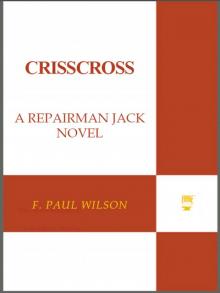 Crisscross
Crisscross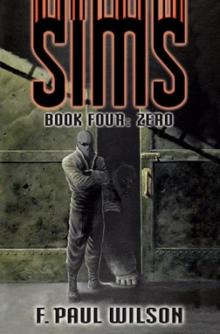 Ground Zero
Ground Zero Short Stories
Short Stories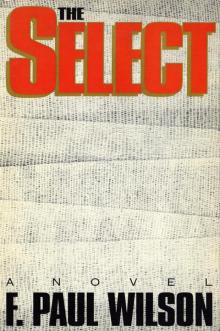 The Select
The Select Codename
Codename Bloodline
Bloodline A Soft Barren Aftershock
A Soft Barren Aftershock The Tomb
The Tomb The Complete LaNague
The Complete LaNague The Tery
The Tery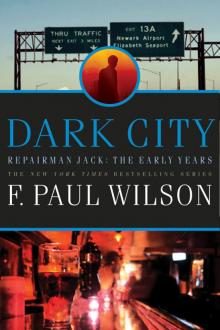 Dark City
Dark City Deep as the Marrow
Deep as the Marrow The Fifth Harmonic
The Fifth Harmonic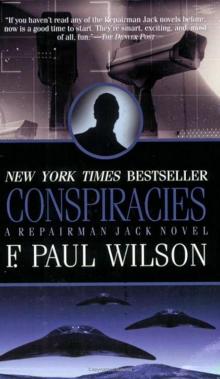 Conspiracies
Conspiracies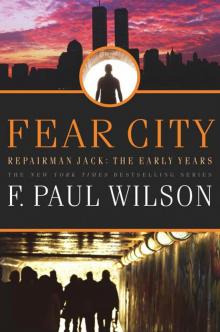 Fear City
Fear City Wheels Within Wheels
Wheels Within Wheels Wayward Pines
Wayward Pines The Portero Method
The Portero Method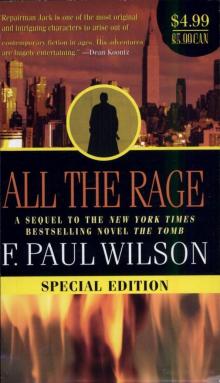 All the Rage
All the Rage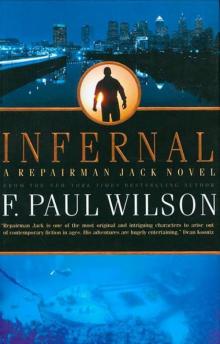 Infernal
Infernal The Barrens & Others
The Barrens & Others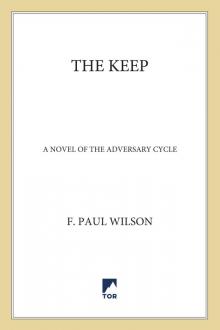 The Keep
The Keep Quick Fixes: Tales of Repairman Jack
Quick Fixes: Tales of Repairman Jack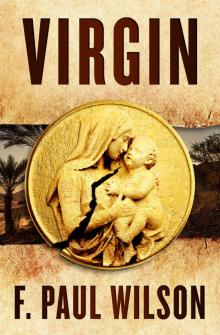 Virgin
Virgin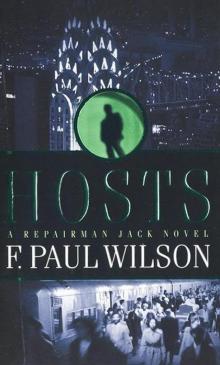 Hosts
Hosts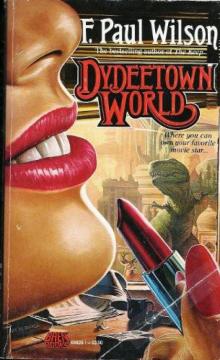 Dydeetown World
Dydeetown World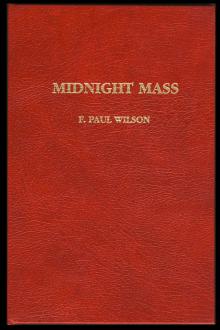 Midnight Mass
Midnight Mass Black Wind
Black Wind The Christmas Thingy
The Christmas Thingy The Last Rakosh
The Last Rakosh The Last Christmas: A Repairman Jack Novel
The Last Christmas: A Repairman Jack Novel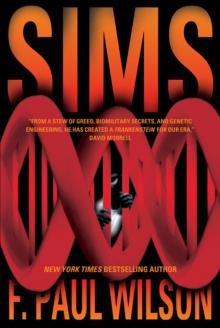 SIMS
SIMS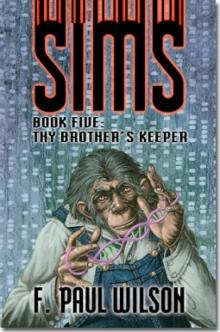 Thy Brother's Keeper
Thy Brother's Keeper Panacea
Panacea The Touch
The Touch Scenes from the Secret History
Scenes from the Secret History Scenes From the Secret History (The Secret History of the World)
Scenes From the Secret History (The Secret History of the World) Implant
Implant The Dark at the End
The Dark at the End Fatal Error
Fatal Error Wardenclyffe
Wardenclyffe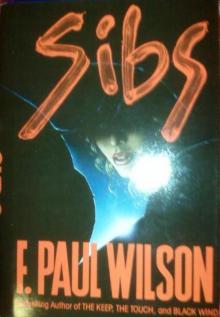 Sibs
Sibs The God Gene
The God Gene The Void Protocol
The Void Protocol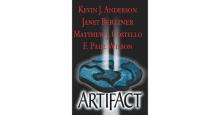 Artifact
Artifact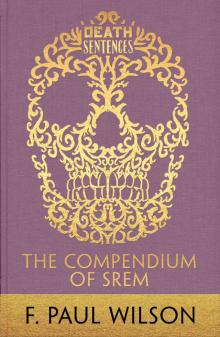 The Compendium of Srem
The Compendium of Srem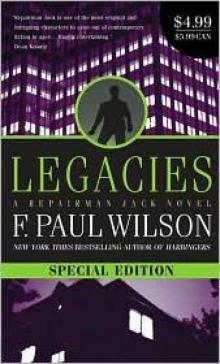 Legacies
Legacies Reprisal
Reprisal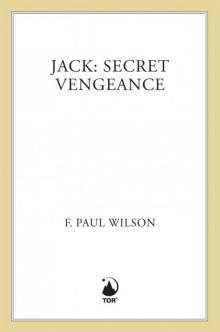 Jack: Secret Vengeance
Jack: Secret Vengeance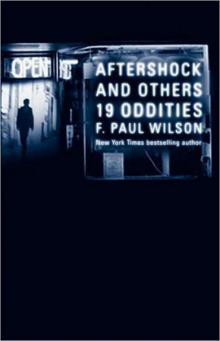 Aftershock & Others: 19 Oddities
Aftershock & Others: 19 Oddities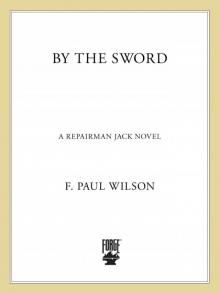 By the Sword
By the Sword Interlude at Duane's (Thriller: Stories to Keep You Up All Night)
Interlude at Duane's (Thriller: Stories to Keep You Up All Night) Fatal Error rj-13
Fatal Error rj-13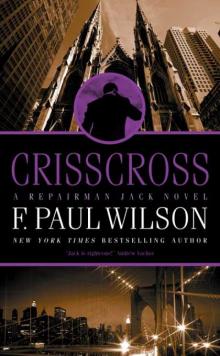 Crisscross rj-8
Crisscross rj-8 Codename: Chandler: Fix (Kindle Worlds Novella)
Codename: Chandler: Fix (Kindle Worlds Novella)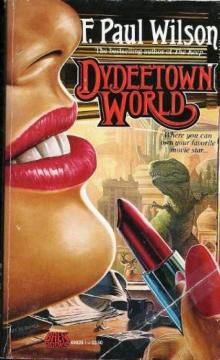 Dydeetown World lf-4
Dydeetown World lf-4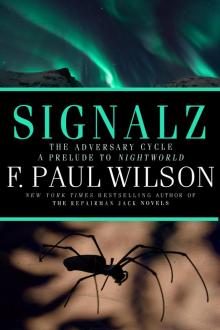 Signalz
Signalz Codename_Chandler_Fix
Codename_Chandler_Fix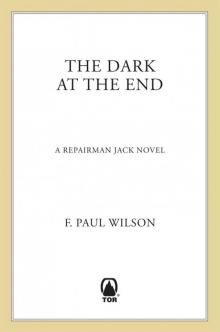 The Dark at the End (Repairman Jack)
The Dark at the End (Repairman Jack)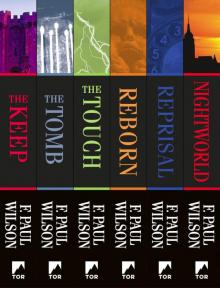 The Complete Adversary Cycle: The Keep, the Tomb, the Touch, Reborn, Reprisal, Nightworld (Adversary Cycle/Repairman Jack)
The Complete Adversary Cycle: The Keep, the Tomb, the Touch, Reborn, Reprisal, Nightworld (Adversary Cycle/Repairman Jack)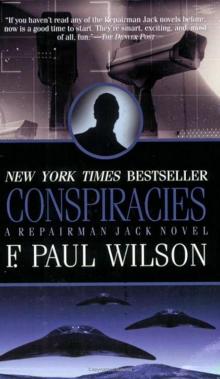 Repairman Jack 03 - Conspiracies
Repairman Jack 03 - Conspiracies Ground Zero rj-13
Ground Zero rj-13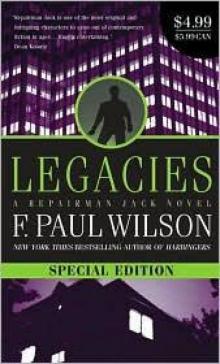 Repairman Jack 02 - Legacies
Repairman Jack 02 - Legacies The Dark at the End rj-15
The Dark at the End rj-15![Repairman Jack [02]-Legacies Read online](http://i1.bookreadfree.com/i/03/21/repairman_jack_02-legacies_preview.jpg) Repairman Jack [02]-Legacies
Repairman Jack [02]-Legacies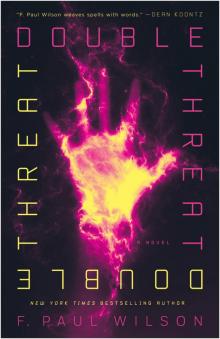 Double Threat
Double Threat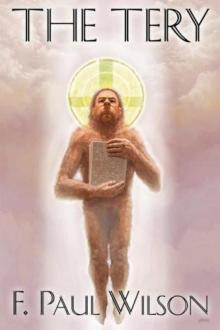 The Tery lf-5
The Tery lf-5 The God Gene: A Novel
The God Gene: A Novel Wayward Pines: The Widow Lindley (Kindle Worlds Novella)
Wayward Pines: The Widow Lindley (Kindle Worlds Novella)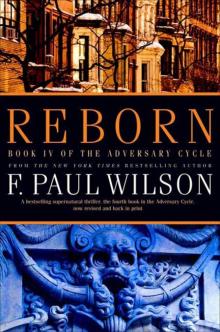 Reborn ac-4
Reborn ac-4 Reprisal ac-5
Reprisal ac-5 New Title 1
New Title 1 Healer lf-3
Healer lf-3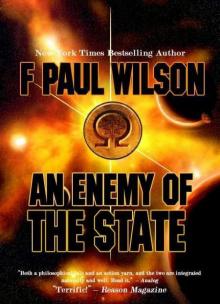 An Enemy of the State lf-1
An Enemy of the State lf-1 Interlude at Duane's
Interlude at Duane's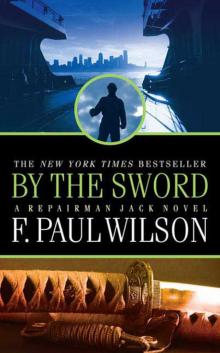 By the Sword rj-12
By the Sword rj-12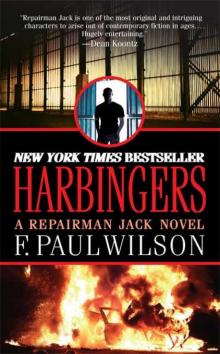 Hardbingers rj-10
Hardbingers rj-10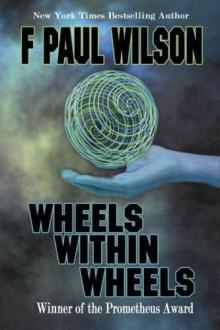 Wheels Within Wheels lf-2
Wheels Within Wheels lf-2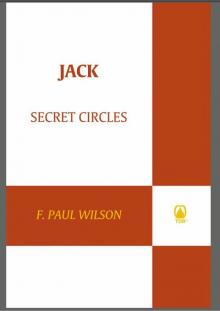 Jack: Secret Circles
Jack: Secret Circles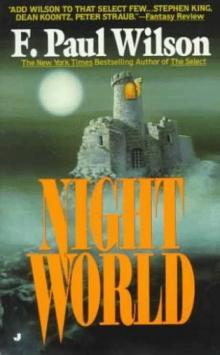 Nightworld ac-6
Nightworld ac-6 Quick Fixes - tales of Repairman Jack
Quick Fixes - tales of Repairman Jack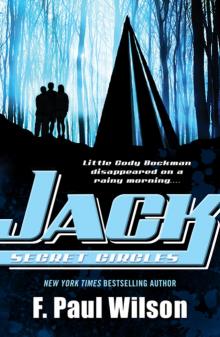 Secret Circles yrj-2
Secret Circles yrj-2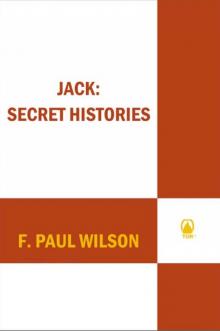 Jack: Secret Histories
Jack: Secret Histories Haunted Air rj-6
Haunted Air rj-6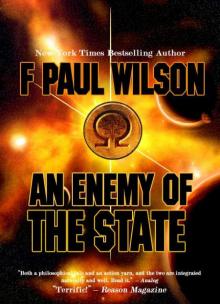 An Enemy of the State - a novel of the LaNague Federation (The LaNague Federation Series)
An Enemy of the State - a novel of the LaNague Federation (The LaNague Federation Series)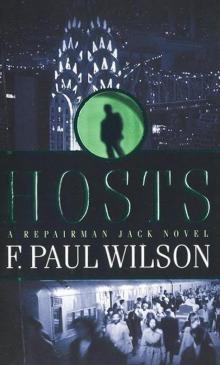 Repairman Jack 05 - Hosts
Repairman Jack 05 - Hosts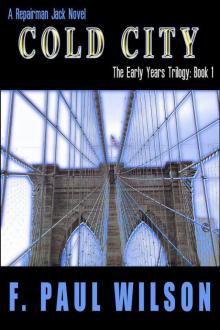 Cold City (Repairman Jack - the Early Years Trilogy)
Cold City (Repairman Jack - the Early Years Trilogy)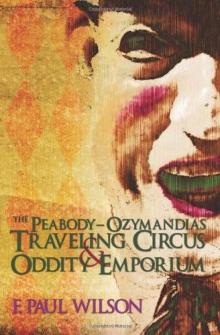 The Peabody-Ozymandias Traveling Circus & Oddity Emporium
The Peabody-Ozymandias Traveling Circus & Oddity Emporium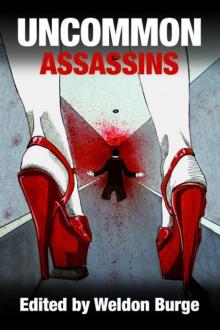 Uncommon Assassins
Uncommon Assassins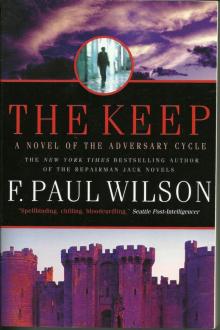 Adversary Cycle 01 - The Keep
Adversary Cycle 01 - The Keep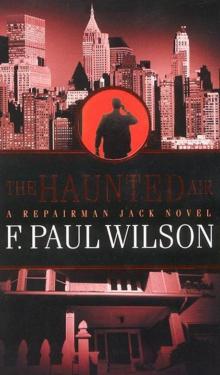 Repairman Jack 06 - The Haunted Air
Repairman Jack 06 - The Haunted Air Bloodline rj-11
Bloodline rj-11 Ultimate Supernatural Horror Box Set
Ultimate Supernatural Horror Box Set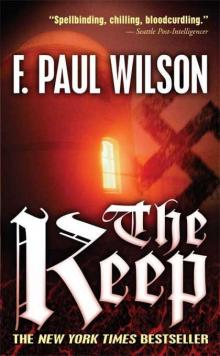 The Keep ac-1
The Keep ac-1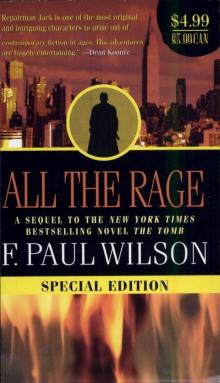 Repairman Jack 04 - All the Rage
Repairman Jack 04 - All the Rage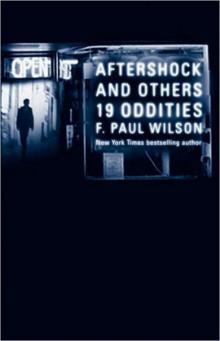 Aftershock & Others
Aftershock & Others All the Rage rj-4
All the Rage rj-4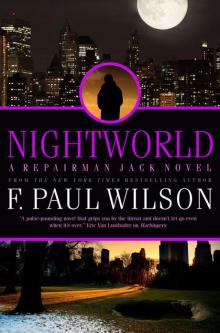 Nightworld (Adversary Cycle/Repairman Jack)
Nightworld (Adversary Cycle/Repairman Jack)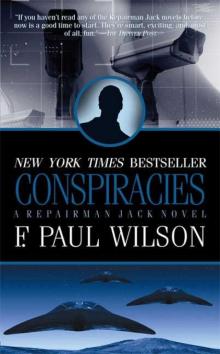 Conspircaies rj-3
Conspircaies rj-3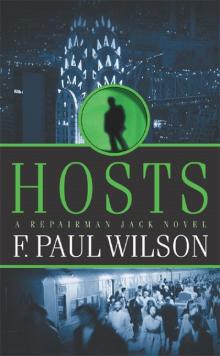 Hosts rj-5
Hosts rj-5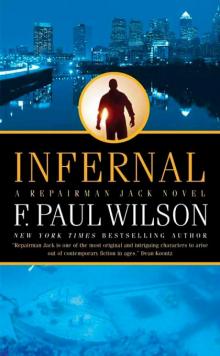 Infernal rj-9
Infernal rj-9 The God Gene: A Novel (The ICE Sequence)
The God Gene: A Novel (The ICE Sequence)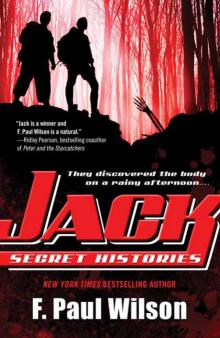 Secret Histories yrj-1
Secret Histories yrj-1